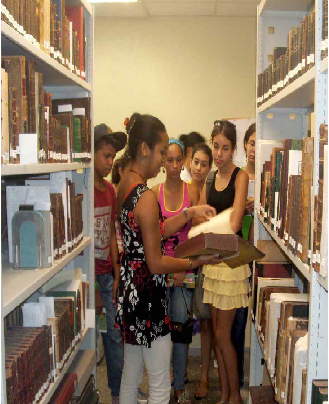Abstract
The Office of the Havana City Historian has been, since its foundation in 1938, an institution of vanguard capable to show a cultural and social work that transcends its geographical and juridical space. From its beginnings the Historian Office tried alternative ways to achieve the preservation of the historical heritage. The special period initiated in the 1990’s reconfigured the authorities of the Historian Office to assure the innovation space aimed to save the cultural traditions and the patrimony. This work analyzes the alternatives that have been used since the 1990’s to save, preserve and publicize the Bibliographic heritage.
Apuntes is registered under a Creative Commons Attribution 4.0 International Public License. Thus, this work may be reproduced, distributed, and publicly shared in digital format, as long as the names of the authors and Pontificia Universidad Javeriana are acknowledged. Others are allowed to quote, adapt, transform, auto-archive, republish, and create based on this material, for any purpose (even commercial ones), provided the authorship is duly acknowledged, a link to the original work is provided, and it is specified if changes have been made. Pontificia Universidad Javeriana does not hold the rights of published works and the authors are solely responsible for the contents of their works; they keep the moral, intellectual, privacy, and publicity rights.
Approving the intervention of the work (review, copy-editing, translation, layout) and the following outreach, are granted through an use license and not through an assignment of rights. This means the journal and Pontificia Universidad Javeriana cannot be held responsible for any ethical malpractice by the authors. As a consequence of the protection granted by the use license, the journal is not required to publish recantations or modify information already published, unless the errata stems from the editorial management process. Publishing contents in this journal does not generate royalties for contributors.


